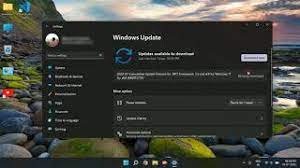Third Time Lucky: How I Conquered WordPress

It’s no secret that WordPress can be a bit of a pain to work with. I’ve tried it twice before and, both times, I’ve come away feeling frustrated and defeated. However, I recently decided to give it another shot and, this time, I came out victorious. In this blog post, I’ll share my story of how I finally conquered WordPress and some tips for anyone else who may be struggling.
Why WordPress?
WordPress is a content management system (CMS) that enables you to create a website or blog from scratch, or to improve an existing website. It’s free and open source software released under the GPL.
WordPress is used by millions of people around the world, including many large organizations, such as The Guardian, Forbes, and The New York Times.
There are many reasons why WordPress is so popular:
1. It’s free and open source
2. It’s easy to use
3. You can find support and help when you need it
4. There are thousands of plugins and themes available
5. It powers a large portion of the internet
Getting Started with WordPress
If you’re new to WordPress, you may be feeling a little overwhelmed. Where do you start? What do you need to know?
Don’t worry, we’re here to help. In this section, we’ll walk you through everything you need to get started with WordPress.
First, let’s take a look at what WordPress is and why it’s such a popular platform for building websites. WordPress is a content management system (CMS), which means it helps you create and manage your website content. It’s used by millions of people around the world, from small businesses to large organizations, and it powers some of the most popular websites on the internet, including The Guardian, Forbes, and The New York Times.
So why is WordPress so popular? There are a few reasons:
– It’s free and open source, which means anyone can use it and contribute to its development.
– It’s easy to use, even for beginners. With a little practice, you can quickly learn how to add new pages, posts, images, and other media to your website.
– It’s versatile and customizable. There are thousands of themes and plugins available for WordPress, which allow you to change the look of your site and add features like contact forms, social media integration, ecommerce functionality, and more.
– It has a large community of users and developers who can provide support and assistance when needed.
Now that you
Themes and Plug-ins
There are literally thousands of themes and plugins available for WordPress, so it can be tough to know where to start. For beginners, I recommend choosing a theme that is simple and easy to customize. Once you have a feel for how WordPress works, you can start experimenting with more advanced themes and plugins.
There are a few things to keep in mind when choosing a theme or plugin:
-Compatibility: Make sure the theme or plugin you select is compatible with the version of WordPress you are using.
-Features: Consider what features you need and make sure the theme or plugin you select offers them.
-Cost: Some themes and plugins are free, while others come with a price tag. Decide how much you are willing to spend before you start your search.
Once you’ve found a few themes or plugins you like, take some time to read the reviews and see what other users have to say about them. This will help you narrow down your choices and choose the best option for your needs.
Creating Content
Creating content is one of the most important aspects of running a successful WordPress site. There are a few key things to keep in mind when creating content for your site:
1. Write clear and concise articles that are easy to read and understand.
2. Use images, infographics, and videos to break up your text and make your articles more visually appealing.
3. Take advantage of WordPress’s built-in SEO features to ensure that your content is properly optimized for search engines.
4. Regularly update your content to keep your site fresh and relevant.
5. Plan ahead by creating a editorial calendar so you always have new content ready to go when you need it.
By following these tips, you can create high-quality content that will engage and inform your readers, while also helping to grow your WordPress site.
The Different Types of WordPress Sites
Different types of WordPress sites include:
1. Business sites
2. E-commerce sites
3. Blogs
4. Portfolios
5. Membership sites
6. Newsletters
7. Forums
1. Business Sites: These are websites created using WordPress for businesses or organizations of any kind in order to help them promote and sell their products or services online, as well as provide information about their company or brand. Businesses can use WordPress to create both simple and complex websites, depending on their needs. Many business sites also make use of e-commerce features, such as online stores and shopping carts, to sell products directly to customers from their website.
2. E-commerce Sites: These are websites created using WordPress specifically for the purpose of selling products or services online. E-commerce sites usually make use of features such as online stores and shopping carts to take orders and process payments from customers, as well as track inventory levels and manage shipping logistics. Some e-commerce sites may also include features such as customer reviews and ratings, product comparisons, wishlists, and more.
3. Blogs: WordPress is also popular among individuals who want to create a blog for personal or professional purposes. Blogs typically consist of a series of posts (or articles) arranged in chronological order, with the most recent post appearing at the top of the page. Most blogs also allow readers to leave comments on individual posts, and
Pros and Cons of WordPress
When it comes to website platforms, WordPress is one of the most popular options available. It powers millions of websites across the globe and continues to grow in popularity. But, like any platform, it has its pros and cons. In this article, we’ll take a look at some of the key advantages and disadvantages of WordPress so you can decide if it’s the right platform for your needs.
One of the biggest advantages of WordPress is that it’s free to use. You can download the software and set up your website without spending a dime. There are also thousands of free themes and plugins available for WordPress, which further reduces the cost of setting up and maintaining a WordPress website.
Another big advantage of WordPress is its flexibility. With WordPress, you can create any type of website you want – from a simple blog to a fully-fledged eCommerce store. No matter what kind of website you need, there’s likely a theme or plugin out there that will help you achieve it.
On the downside, one of the main complaints about WordPress is that it can be quite challenging to use, especially for beginners. The learning curve can be steep and it can take some time to get comfortable with all the different features and options available. Additionally, because WordPress is so popular, it’s often targeted by hackers and malware authors, which means you need to be extra vigilant about keeping your site secure.
WordPress Themes and Plugins
If you’re new to WordPress, one of the first things you’ll need to do is choose a theme for your site. There are thousands of free and paid themes available, so finding the right one can be a bit overwhelming.
A good place to start is by looking at the most popular themes in the WordPress repository. These are well-designed and well-supported themes that are used by millions of WordPress sites.
Once you’ve found a theme you like, you can install it on your site using the built-in theme installer. If you want more control over your site’s design, you can install a plugin like Beaver Builder or Elementor, which will allow you to build custom pages and posts without having to touch code.
Conclusion
I’m glad I persevered with WordPress because it’s an incredibly powerful platform. It can be challenging to learn at first, but once you get the hang of it you’ll be able to create any kind of website or blog you want. If you’re thinking about giving WordPress a try, I encourage you to go for it. And if you run into any problems, just remember that third time lucky!




